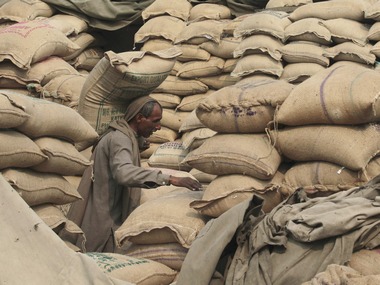The Right to Food Campaign, an umbrella body of over 50 grass root organizations, has criticised the National Food Security Bill, saying that the current demarcation made to provide food at subsisided rates is bound to create conflict among people. Instead the body has suggested universalisation of the Public Distribution System (PDS) and providing 50 kg of cereals to entitled beneficiaries. The bill is currently with the standing committee and was expected to be passed in the monsoon session. According to the government’s original plan, the food bill was to divide beneficiaries into three categories- priority, general and excluded, based on centrally determined parameters. Those demarcated in the general category (50 per cent of urban India and 75 per cent of rural India) were to get food on subsidized rates. [caption id=“attachment_434581” align=“alignleft” width=“380”]  Reuters[/caption] “There is no clarity on how priority and general households are to be identified. It seems that the criteria are to be set after the socio economic and caste census is completed. The Census is already mired with controversies. Even if the Census is completed, there are bound to be large exclusion errors, leaving many poor households categorised as ‘general’ and therefore with only meager entitlements, said Anjali Bhardwaj of the Right to Food Campaign. In July, the Food Ministry came out with an alternate plan which would do away with multiple categories. It excludes 33 per cent of the population across the country and provides a common entitlement of 25kg per month to the rest. The exclusion will be done at the discretion of state governments. “This alternate plan is a step forward , but if the excluded category is as large as 33 per cent of the population across the country, then remains a form of targeting with many of the needy actually being left out. This still falls short from the principle of universalisation. Exclusion should rather be based on a few, easily identifiable criteria such as government employee, income tyax payees and so on,” said Aruna (who uses only one name), another member of the National Advisory Council. “There is no logic in the common entitlement being as low as 25 kgs per month per household. The government cannot continue arguing that there is not enough grain when the FCI godowns are overflowing, and current foodgrain stocks being around 80 million tones,” added Roy, on the sidelines of a jan manch held in Delhi’s Jantar Mantar on Tuesday. Jean Drèze, visiting professor at the Department of Economics, Allahabad University said that the alternate proposal would serve no purpose other than in reshuffling the food grains in favour of richer states. “The purpose of the bill is to create well defined entitlements for the benefit of people. We cannot leave it to the states to formulate a list of people who will be excluded. Secondly, the uniform exclusion of 33 per cent population in each state will give similar allocation to each state irrespective of the state’s per capita income. The biggest beneficiaries will be richer states such as Punjab and Haryana”, he said.
The Right to Food Campaign, has criticised the National Food Security Bill, saying that the current demarcation made to provide food at subsisided rates is bound to create conflict among people
Advertisement
End of Article


)

)
)
)
)
)
)
)
)



